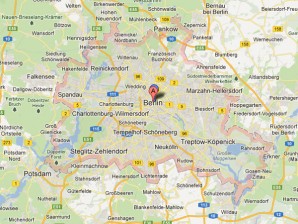Germans OK Patriot missiles to defend Turkey

Defense Minister Thomas de Maiziere told reporters that two batteries with a total of 400 soldiers would be sent to the border area under NATO command for one year, although the deployment could be shortened.
The decision must be endorsed by the German Parliament, but approval is all but assured.
The Dutch Cabinet is expected to announce approval Friday contingent on parliamentary approval.
De Maziere said the overall mission was also expected to include two batteries each from the Netherlands and the United States.
The Western alliance decided this week to approve sending the weapons to prevent cross-border attacks against Turkey after mortar rounds and shells from Syria killed five Turks.
Article continues after this advertisementBut the announcement also appeared to be a message to Syrian President Bashar Assad’s regime at a time when Washington and other governments fear Syria may be readying its chemical weapons stockpiles for possible use.
Article continues after this advertisementSyria has denounced the NATO plan but German officials stressed that the missiles will only be used to defend Turkish territory and would not be a part of any “no fly zone” over Syrian territory.
“Nobody knows what such a regime is capable of and that is why we are acting protectively here,” Foreign Minister Guido Westerwelle said.
Officials said the Patriots will be programmed so that they can intercept only Syrian weapons that cross into Turkish airspace. They aren’t allowed to penetrate Syrian territory pre-emptively. That means they would have no immediate effect on any Syrian government offensives — chemical or conventional — that remain strictly inside the country’s national borders.
Due to the complexity and size of the Patriot batteries — including their radars, command-and-control centers, communications and support facilities — they will probably have to travel by sea, NATO officials said.
They probably won’t arrive in Turkey for another month, officials predicted.